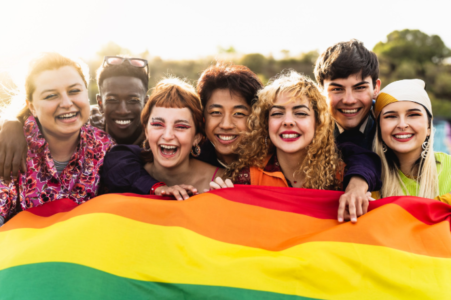LGBTQ+ students face erasure and stigma in a curriculum designed for a heteronormative narrative
“I thought that I wasn’t good enough for the world. I wasn’t good enough to even be mentioned,” says Jason, a 24-year-old student and alumnus of a Catholic school in Singapore. His words reflect the deep alienation felt by many LGBTQ+ youths who believe the local sex education curriculum has failed them.
For queer students, schools often become isolating spaces where their identities are shunned or ignored. Many describe their experience of sex education as heteronormative and lacking any meaningful mention of LGBTQ+ relationships or sexual health.
Erasure in Education
Sex education in Singapore’s schools typically revolves around biological puberty changes, abstinence until marriage, and heterosexual safe sex. Queer relationships and sexual practices are either excluded or mentioned in a dismissive, tokenistic manner.
Jason recalls, “It was mentioned once, in a very touch-and-go way. There was no depth to it.”
For Rachel, a 20-year-old student, the lack of inclusion had a damaging impact. “It made me demonize myself,” she says, referring to how the curriculum framed heterosexuality as “natural,” leaving her struggling with her sexual identity.
Queer Sexual Health: The Missing Chapter
Sex education’s failure extends to practical sexual health information for LGBTQ+ students. Topics like protective measures during queer sex, emotional nuances in queer relationships, and other relevant issues are entirely absent.
“It’s very directed to straight couples only. They never talked about anal or other types of sex,” says Sarah, a recent graduate.
When schools neglect these critical topics, queer students are forced to seek answers online, often encountering misinformation or harmful content. Jennifer, a former student of a Catholic school, recalls the confusion of sifting through unreliable online resources for safe lesbian sex practices.
The Role of Religion and Educators
In schools with religious affiliations, the rejection of queerness is often reinforced through faith-based teachings. Jennifer recounts how her Catholic school subtly promoted heteronormative values, which intensified the internal conflict for queer students of faith.
Some teachers’ personal biases further compound the issue. Elizabeth, a secondary school student, describes incidents where teachers publicly shamed or distanced themselves from queer students, creating a hostile environment.
A Call for Change
The repeal of Section 377A in 2022 marked a legislative step forward but has not translated into meaningful changes in schools. The Ministry of Education has stated that the curriculum will continue to align with “the values and norms the majority of Singaporeans want to uphold.”
This stance ignores the harm caused to LGBTQ+ students, who remain excluded and stigmatized. Research consistently shows that inclusive sexual health education benefits all students, particularly queer youth. Such education not only provides essential health information but also validates their identities, fostering a sense of belonging and self-worth.
As Singapore progresses, it must ask itself: How can a society claim inclusivity while neglecting the needs of its queer youth?








